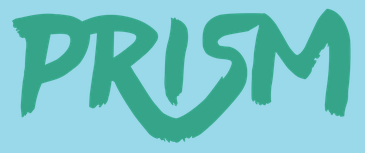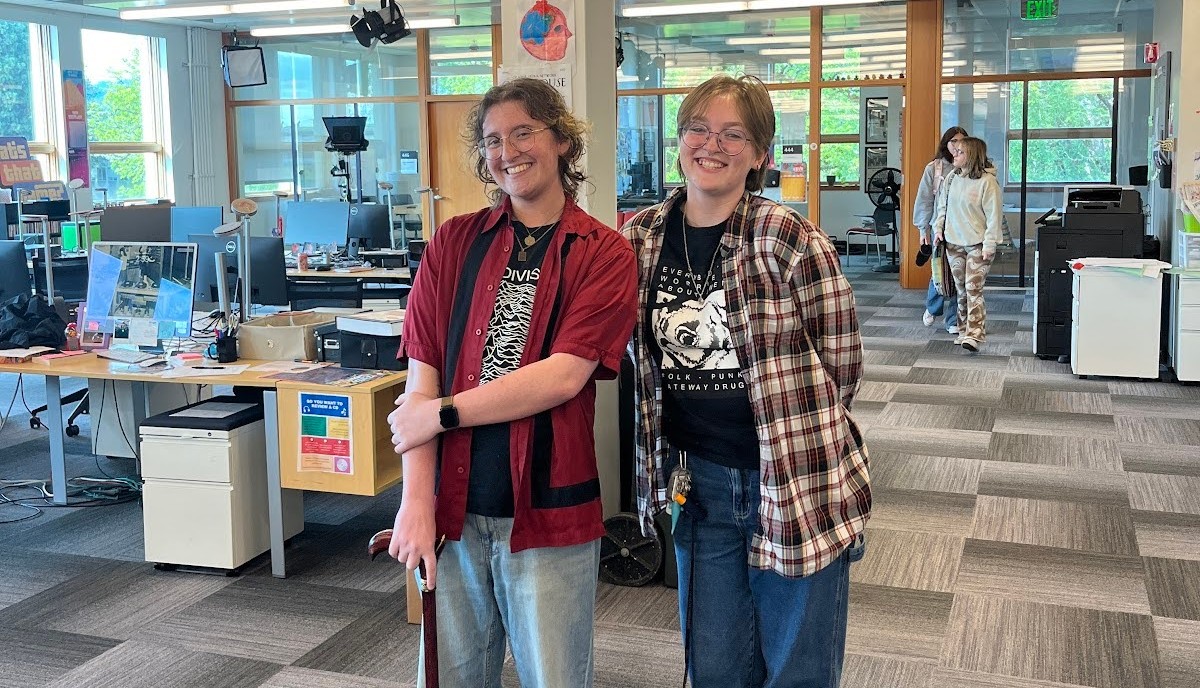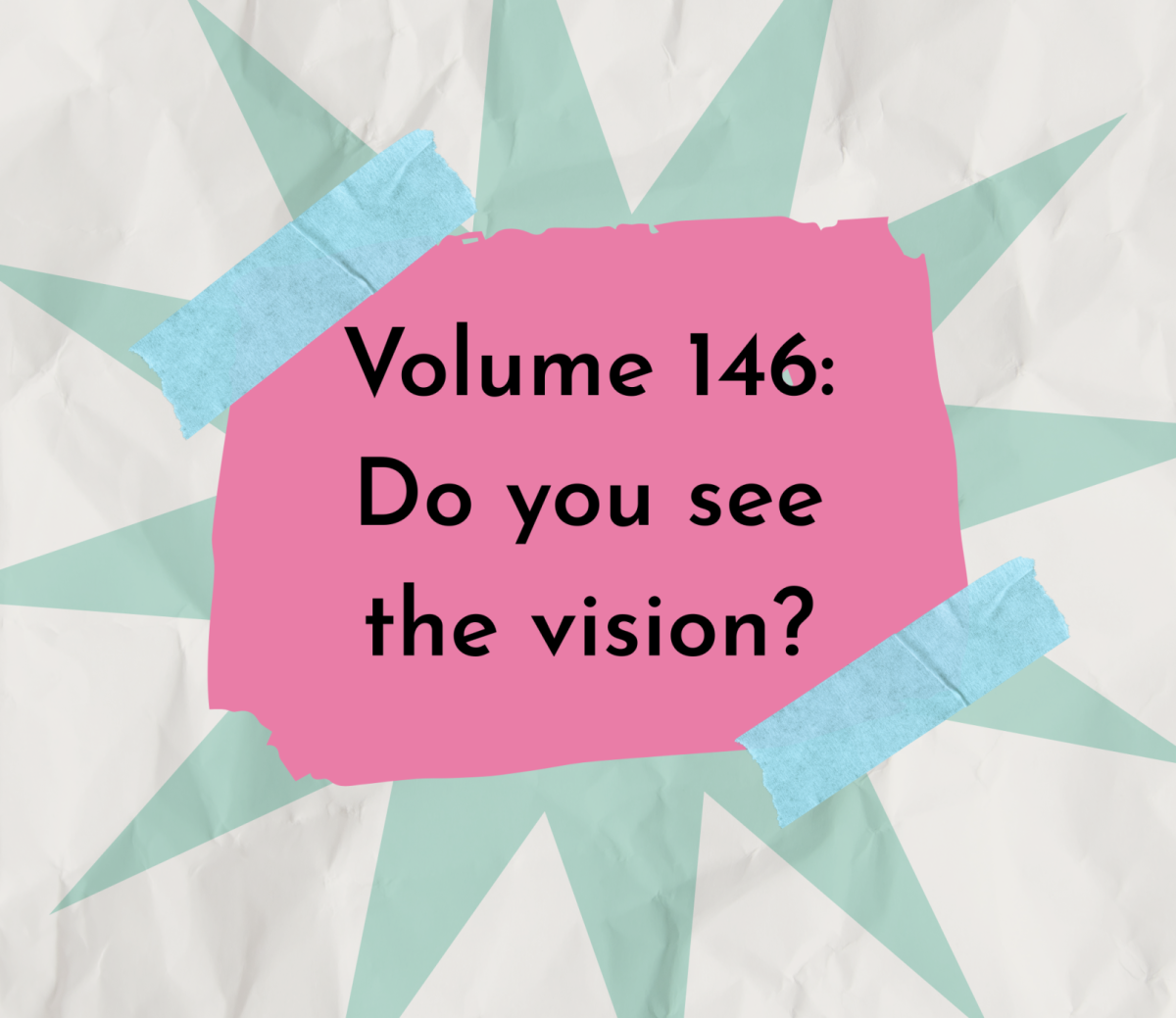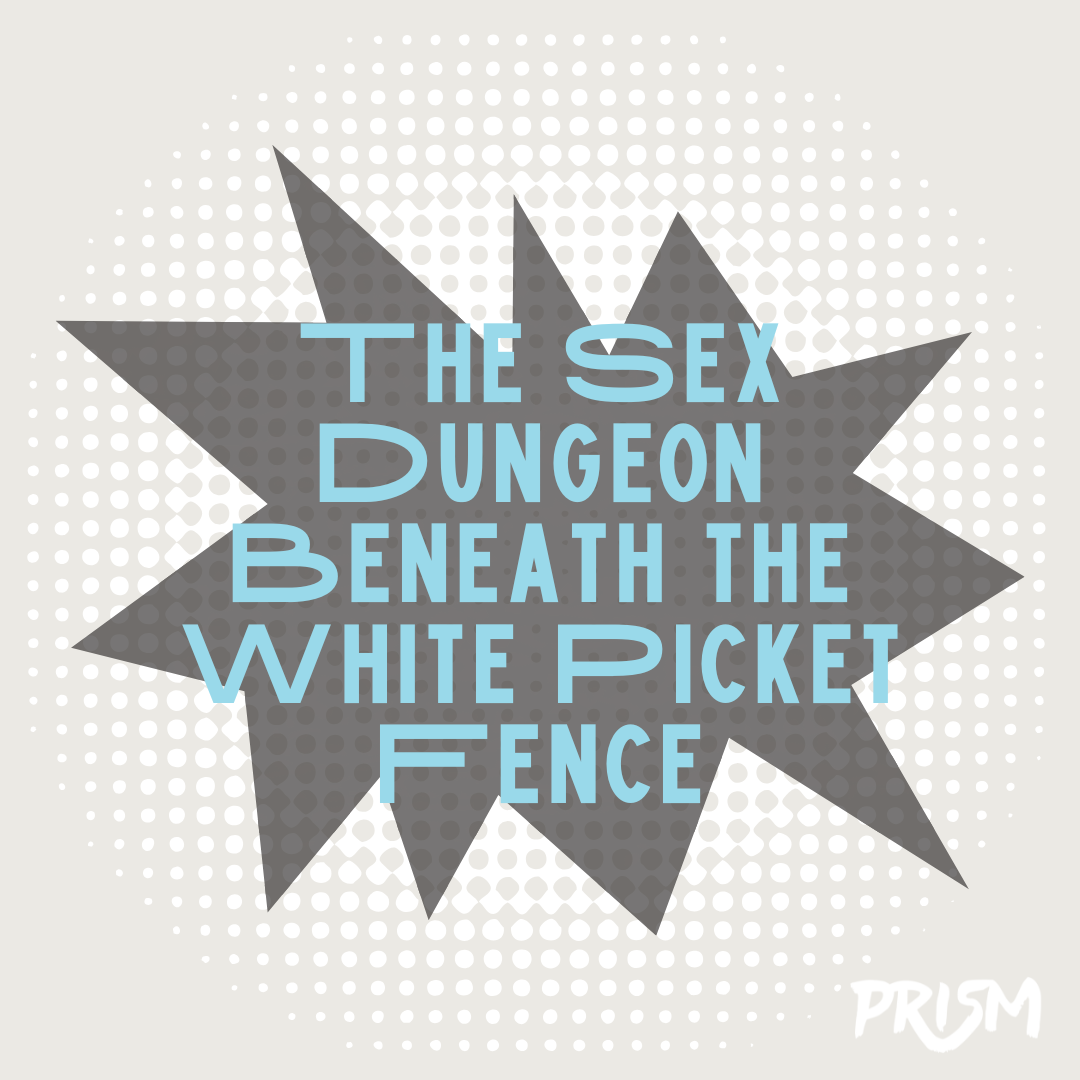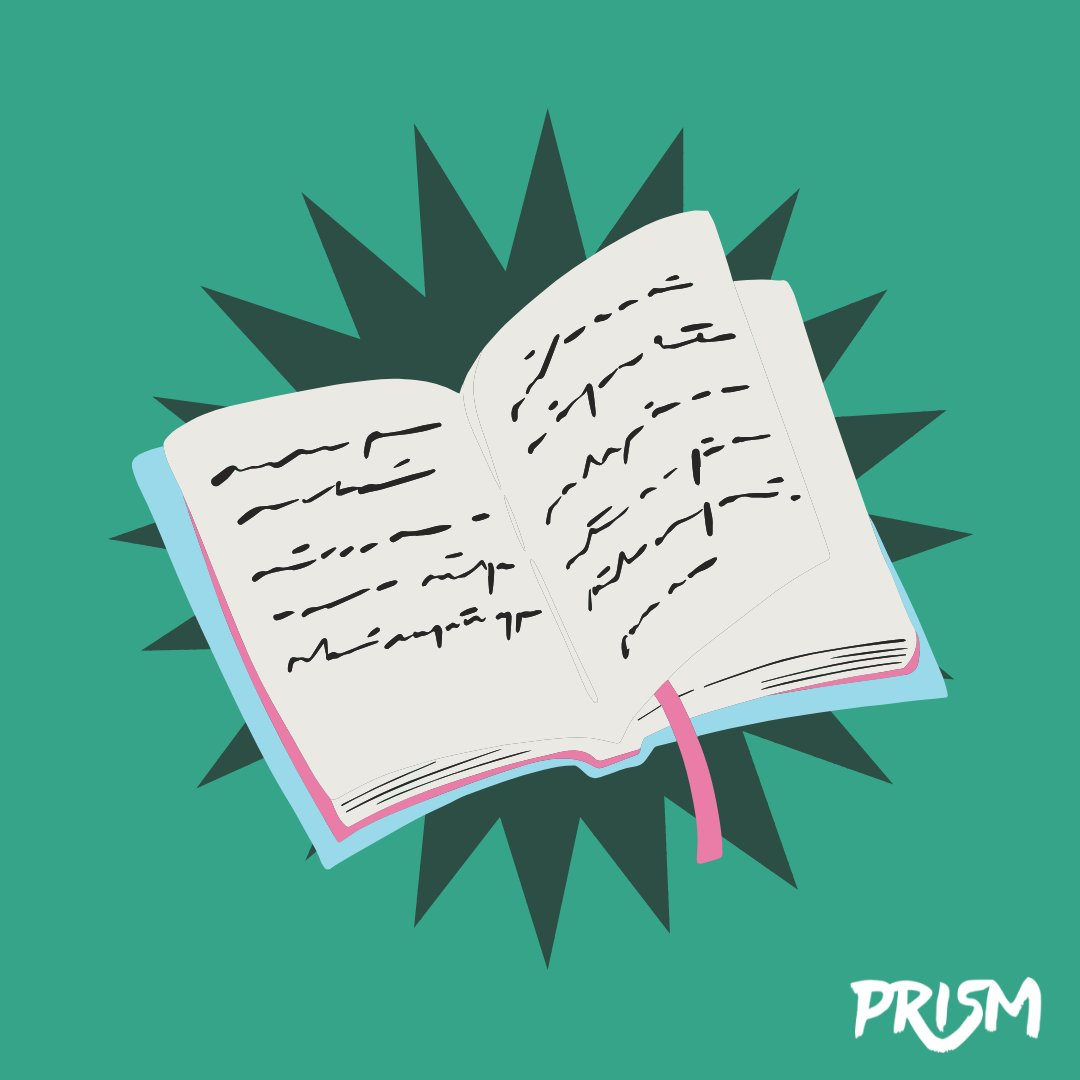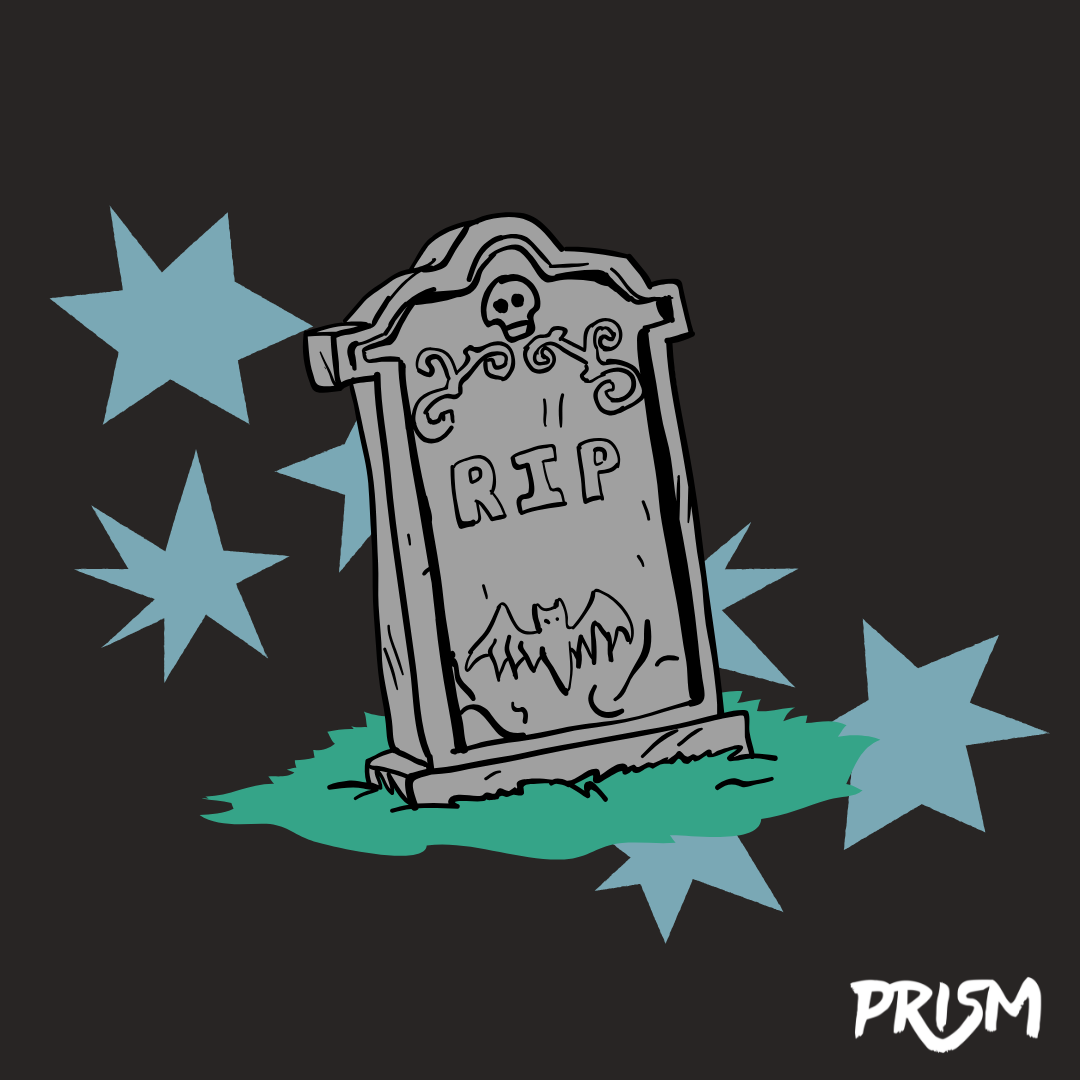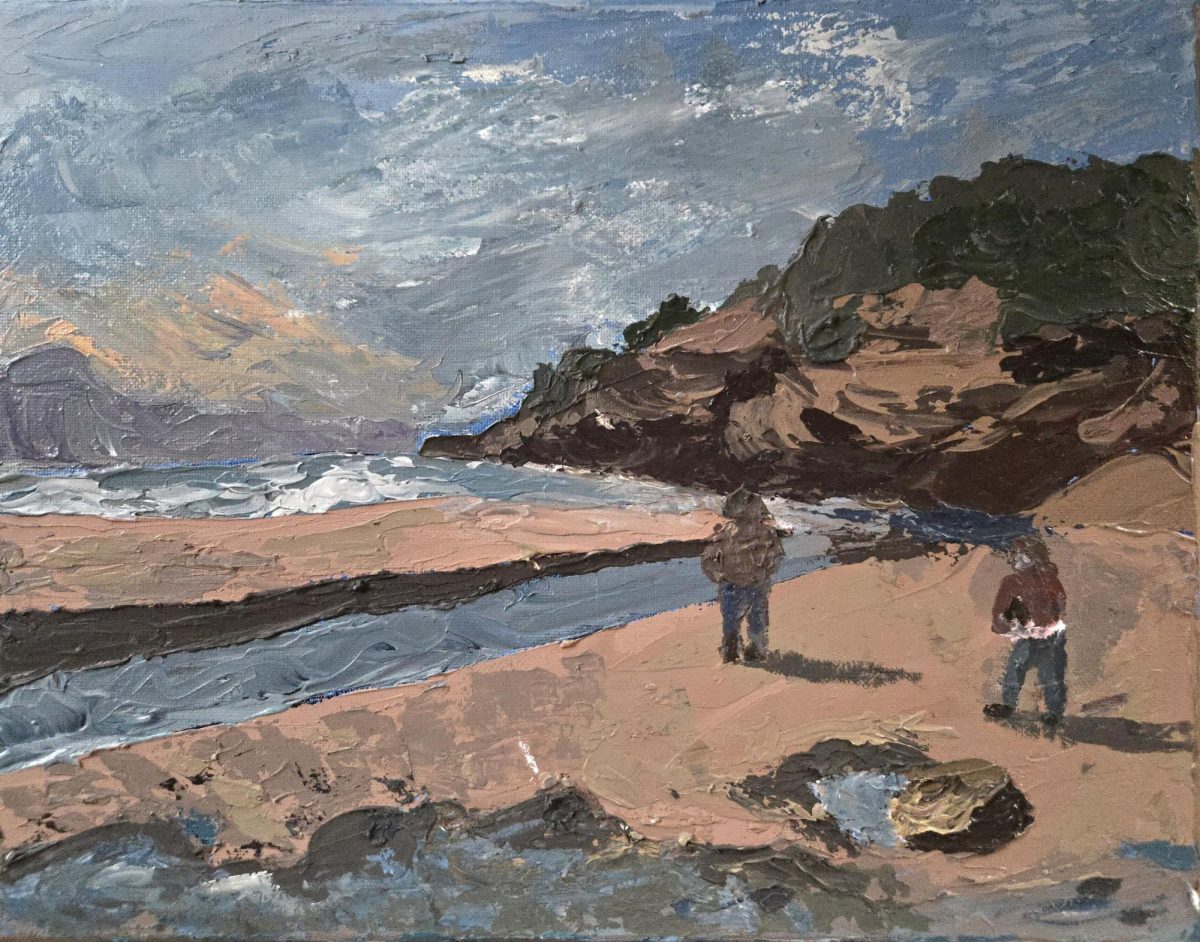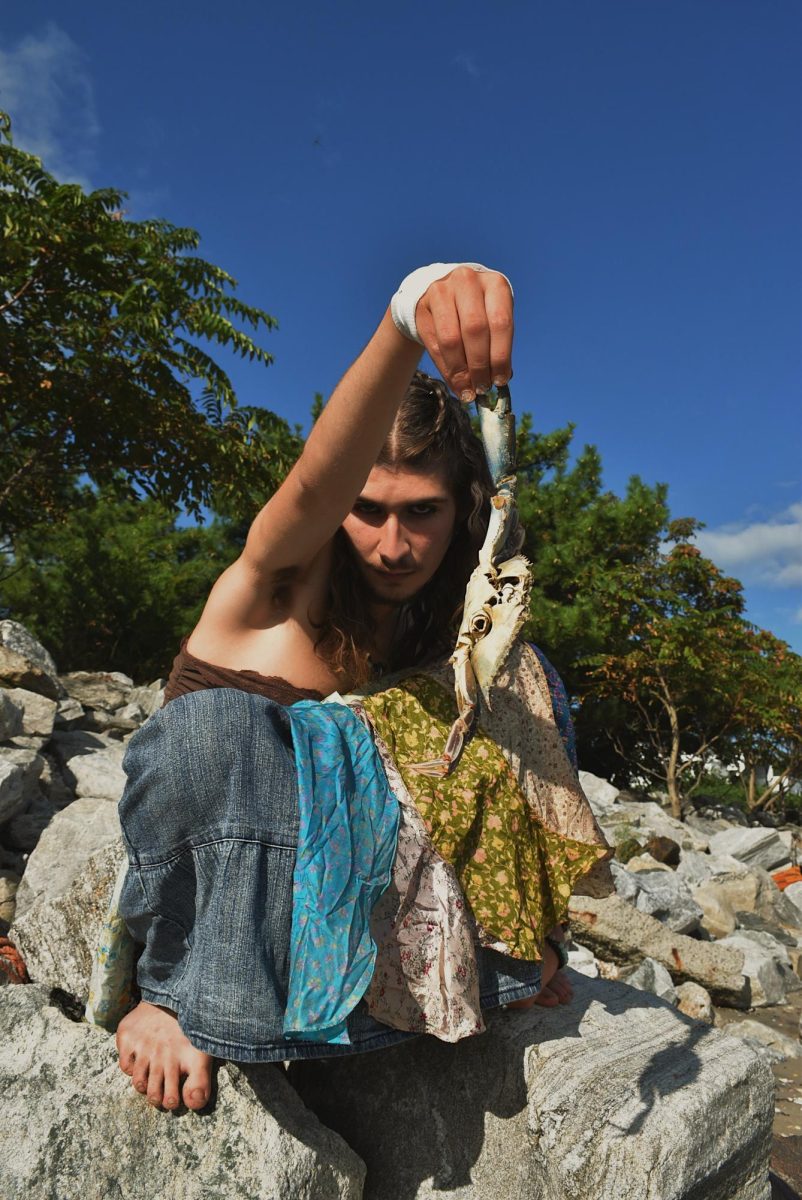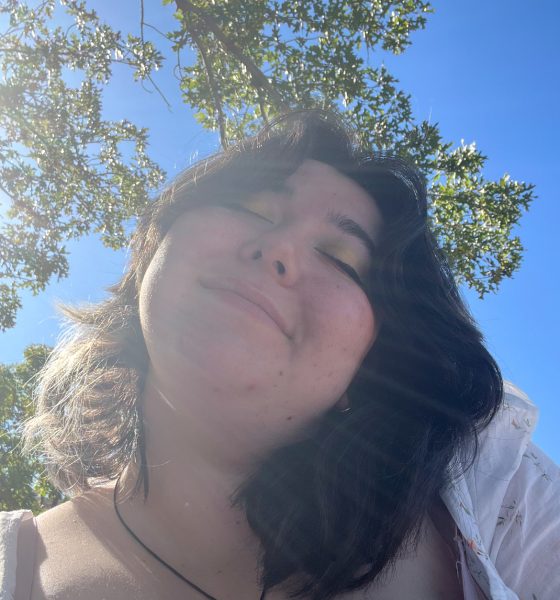It’s come to my attention that when one is a senior in college and also the editor of a very cool student lit mag, one probably does not have that much time to read for pleasure. It’s also come to my attention that my sleep schedule, which I consider to be totally normal and not weird, is what some would call “wild,” “borderline unhealthy” and “probably an indicator of deep-rooted anxiety.” However, when taken in tandem, it’s easy to see that what my caring friends and family view as a tendency to overexert myself and spend too much money on things I don’t need and could get for free (support your local libraries, I implore you), I view as the only steady form of self-care I have. It’s almost summer, so no doubt you are looking for something to read. As evidenced below, I spend a lot of time reading. I study as well, I swear. Just not as much as I read. So, without further ado, here are my reviews of all the books I’ve read this school year — so far.
(Note: These reviews are not plot summaries — that’s what Goodreads is for — so therefore, this post does not need a spoiler warning.)

“To the Lighthouse” by Virginia Woolf — ★★★☆☆
We unfortunately did not start the year off with a bang. Listen, three stars is not a bad review; by definition, it’s average. Woolf’s writing style and use of time is innovative and interesting — the book is in three sections, with the first and last each taking place over a day and making up most of the length, intercepted by a 30-page intermission that covers almost a decade of story. As a creative writer, I can’t help but appreciate the temporal experimentation and how it complicates the melancholy, nostalgic tones that accompany the story of this family. However, as a first read of a new school year, it simply wasn’t exciting enough for me to fully enjoy it. I will read this again one day, when I have the peace of mind to dwell upon it a little longer.
“The Collagist” by Karen Holmberg — ★★★★☆
If there’s one thing this story makes obvious, it’s that Holmberg is a poet through and through. “The Collagist” is Oregon State University professor Karen Holmberg’s Young Adult debut, and what a whimsical, comforting debut it was. This coming of age story about a girl looking for answers to her family’s shrouded past is smothered in strangeness, in the best way. Minus one star simply because the voice was a little young for me and some of the characters were hard to keep track of, but if you’re looking to support a local author, this suspenseful dip into enchantment is a good place to start.

“The Familiar” by Leigh Bardugo — ★★★★★
I’ve read all of Bardugo’s books, and I’ve yet to be disappointed. You say the words “historical fantasy” to me and I will immediately empty my pockets. Add on a deadly competition, dark politics and religious trauma, and you’ve got me hook, line and sinker. While there were a few character or plot moments that felt like they were going somewhere but didn’t quite come to fruition, I never found myself disappointed by this story. Sometimes a good atmosphere pushes a book to the next level, and that’s perfectly fine! Plus, to my knowledge, the historical aspect of this book was well-researched, and that certainly came through in the writing. Overall, a perfect October read.

“All My Rage” by Sabaa Tahir — ★★★★☆
This title is a warning: This book will make you furious, but it will be worth it. Tahir is known for her fantasy, but her first venture into contemporary literature is heart-wrenching and healing all in one. It so clearly comes from a place of deep connection and understanding within the author. It’s an attempt at forgiveness and reconciliation, but also a cathartic scream into the void that tells the reader that sometimes, the anger is helpful too. This is a story about friendship, about generational trauma and cycles of abuse, and about walking the line between following your own ambitions and fulfilling responsibilities set by your family and culture. The ending got a bit bleak for me, but the last chapter or so pulled it up.
“The Shepherd King Duology” by Rachel Gillig

“One Dark Window” — ★★★★★
Oh, this was exactly what I needed. I did not have any expectations for this series. I picked it up mostly on a whim, and yes, I did judge it a little bit by its cover, but I was so pleasantly surprised. Kind of gothic, atmospheric, with a unique if not very complex magic system, and a narration like nothing I’ve ever seen before: Our heroine has an ancient monster living in her head. And nothing will ever beat a meet-cute where one of them ends up held at knifepoint by the other. The only thing that took me out of it was the names. Maybe it’s the years of orthodontia that left my jaw clumsy, but “Elspeth Spindle” doesn’t exactly roll off the tongue.

“Two Twisted Crowns” — ★★★★★
Have you ever read a sequel so good, it brings the first book up to a five-star read? Call it unfair all you want, but this duology works in such enchanting tandem, without becoming one homogenous story; every new revelation in this book made the events of the first book so much more interesting and spellbinding. Sometimes, a fantasy book doesn’t need a completely unrecognizable world and inconceivable magic system to be enthralling. Lastly, I can’t help but love a sequel that capitalizes on the secondary characters’ developments in ways that actually make sense.
“The Penelopiad” by Margaret Atwood — ★★★★☆
In my first foray into the Atwood canon, I picked up this twist on “The Odyssey” from Penelope’s perspective. The shining part of this book was the chorus; throughout the story, there were verses sung by Penelope’s maids who had been executed by Odysseus for supposed disloyalty. The collective voice was the definition of haunting, and Atwood’s poetic instinct is apparent throughout. The story is not just the story of Penelope. It is the story of those girls who were silenced, both in the original tale and in its long legacy as one of the most famous books in literary history. Atwood’s reverence for Homeric epics is evident, but she’s not afraid to show the characters for who they’ve always been — and that includes Penelope.

“Out of the Easy” by Ruta Sepetys — ★★★★☆
Set in the French Quarter of New Orleans in the 1950s, “Out of the Easy” is another story of a girl caught between others’ expectations of her and her own desires. Josie as a narrator fell a little flat for me — probably because, compared to the other Sepetys books I’ve read, the stakes weren’t quite as high for everyone as Josie made them out to be — but what really made this book for me was the rendering of Willie Woodley, the madam Josie and her mother work for. This was more of a mystery book than Sepetys normally writes, but her mastery of historical fiction, of making the real-world settings characters in their own right, comes through strongly.
“The Handmaid’s Tale” by Margaret Atwood — ★★★★★
I don’t need to tell you how important the messaging of this book is in the current world we live in, but if you haven’t actually read it, it’s more frightening than whatever you’re picturing. Atwood’s prose is sharp, lyrical and in perfect tandem with her characters, especially Offred. This story is screaming at us to listen, to heed its warning, to understand that this horrible situation isn’t theoretical, but it doesn’t have to be inevitable. On a technical level, Atwood is a master of sneaking in worldbuilding the way a parent might sneak veggies into a child’s mac and cheese. You don’t know you’ve been initiated into this world until you’re stuck. By the time the reader gets to one of the most harrowing, should-set-your-skin-crawling scenes, they are so sucked into the world that it almost feels normal. This is a lesson, too: Keep your eyes open. You’d be surprised by how desensitized even the most outspoken people can become when the horrors have become commonplace.

“The Honey Witch” by Sydney J. Shields — ★★★★☆
I have to confess that the only reason this book got four stars from me is because the romance element was sweet, witchy and gay. It’s another one of those books where the atmosphere does a lot of the work. The magic system could have used more development — how are honey and ash elemental opposites? — and the last fifth or so got very dark compared to the tone of the rest of the story, but overall, it was an enjoyable reading experience. I was worried the prose would tend toward the cliche or flowery, but I was pleasantly surprised. This book is whimsy embodied, perfect for park reading and picnics in the sunshine.

“The Testaments” by Margaret Atwood — ★★★★★
Oh, man. Ohhhh, man, this book. This is such a fascinating direction for a sequel to “The Handmaid’s Tale,” a perspective that added so much more complexity to the original story. Aunt Lydia may just be the most interesting character I’ve ever read about, and I’m thrilled with the way Atwood expanded the scope of her story beyond Gilead’s borders. Coming so long after the original, I was worried “The Testaments” would rely too much on the legacy and cultural reception of “The Handmaid’s Tale,” but Atwood did a great job of satisfying her audience while still defying their expectations. She combines everything she learned about the world while creating Gilead with everything she’s learned about the world we live in now, and it’s both a haunting and hopeful addition to the classic dystopia.

“Nightwood” by Djuna Barnes — ★★☆☆☆
I want to make it clear that I don’t hate surrealist or modernist writing. I just rarely pick it up at the right time. Books like “Nightwood” take a lot of focus, and unfortunately, when I spend a lot of my time reading philosophical academic or literary analysis essays for school, I want to read something in my spare time that I don’t have to think too hard about. Barnes is clearly an eccentric, fascinating person with a very unique perspective on life and relationships, and there were some moments in this book that struck me and stuck with me. On the line level, the prose is interesting and thought-provoking, but, unfortunately, a lot of it had to be removed from the context of the novel to actually provoke thoughts.
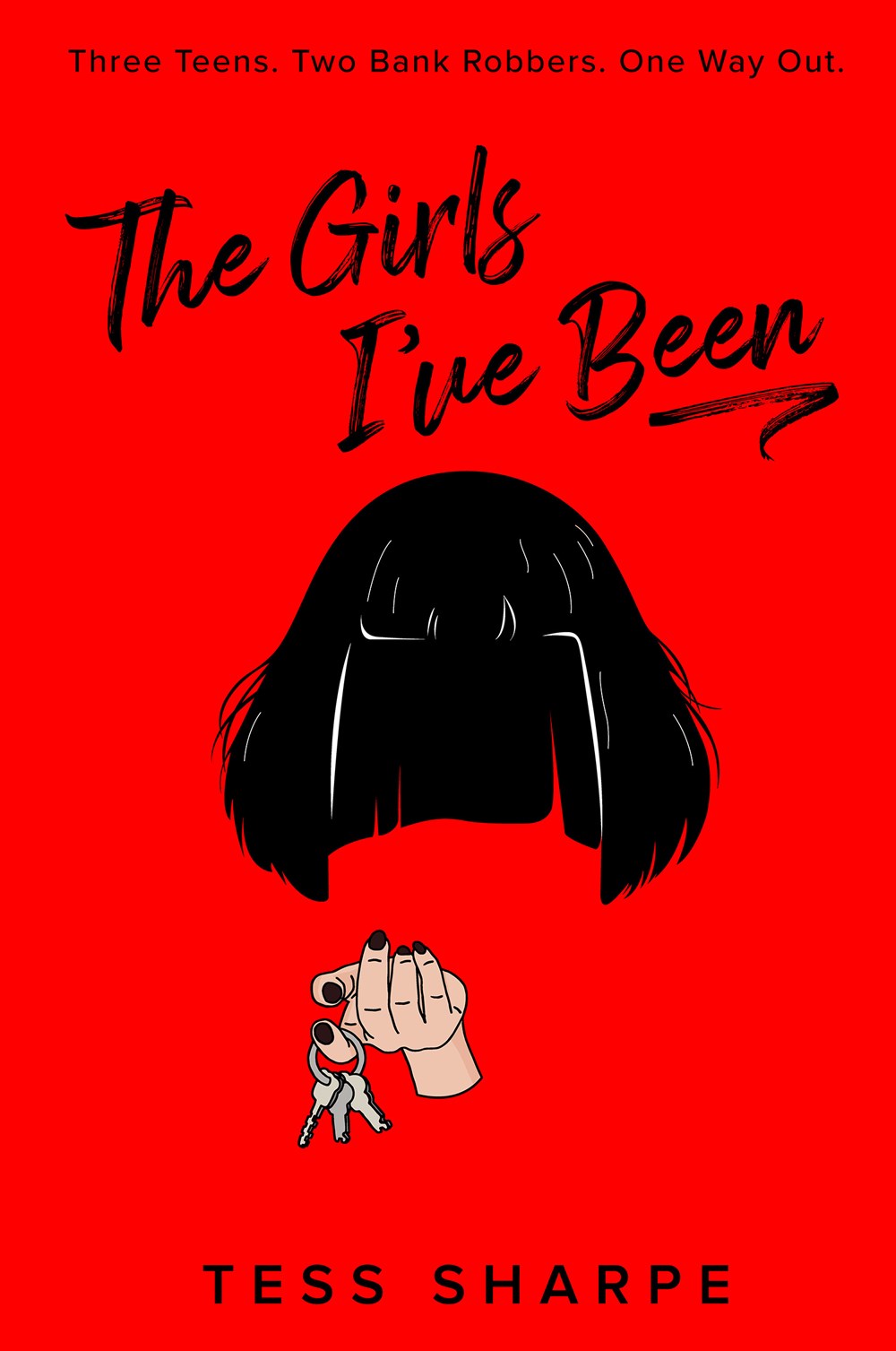
“The Girls I’ve Been” by Tess Sharpe — ★★★★★
I love a heist. I love a high-impact situation. But if you make it queer, add in a secret family history and tie it all up with good dialogue? I am so unbelievably sat. Sharpe’s writing is — can I say sharp? Would that be too on the nose? — sly as a fox, masterfully paced and somehow realistic despite the foreignness of the situation (I mean, I would hope so). The reader is on a need-to-know basis, and happy about it; we find out information exactly when the author wants us to, and it’s always with perfect timing. In that way, Sharpe embodies her narrator Nora brilliantly. I didn’t know this book had a sequel when I picked it up, but I plan on reading the rest of the series, if only to get more of Sharpe’s dynamic and enthralling characters.

“Under the Whispering Door” by T.J. Klune — ★★★★☆
One would think that as a 21-year-old woman-adjacent creature, there wouldn’t be a lot for me to relate to in a story about a middle-aged, coldhearted, dead lawyer man. But if there’s one thing Klune knows how to do, it’s find the simple truths of humanity and reveal them to his readers. Besides the concept of the doorway between life and death as a cozy tea shop — which I love so much — the found family elements truly make this story shine. Wallace’s character arc had a few out-of-touch eye-rolling moments — why does Hugo like this guy again? The concept was beautiful, but also a convenient way to make it Hugo’s job to fix Wallace, which I didn’t love, but the character of Hugo earned this book four stars.

“When My Brother Was an Aztec” by Natalie Diaz — ★★★★★
Does anything even need to be said here? Natalie Diaz writes it, I read it. Diaz’s poetry is starving. Her words bleed in the least poetic way possible, yet she stitches them back together in ways that always leave me breathless. This collection is a performance, and it blows my mind that it’s a debut. Her poems are both serious and bone-shakingly funny. She writes about love and identity as if they are both oceans and grains of soil simultaneously. I read her second book, “Postcolonial Love Poem” (which is a Pulitzer winner) last year, so it was interesting to see the differences in her writing in reverse, but I am so hungry for more of her writing that I could read these books again and again.
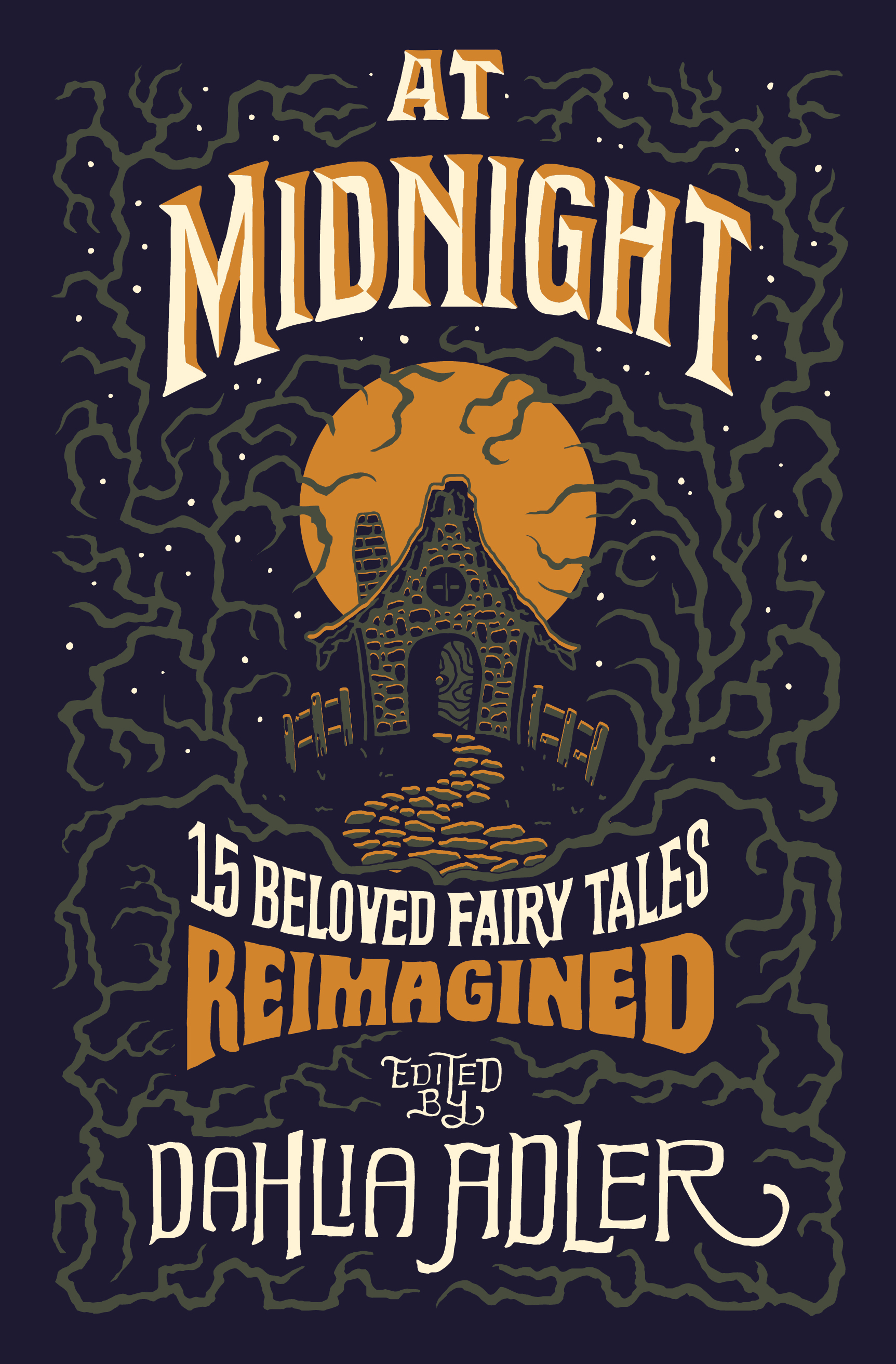
“At Midnight” by Dahlia Adler (Editor) — ★★★★★
This is an anthology of fairy tale retellings by some of the best contemporary speculative fiction writers out there. I went into each story expecting to find familiar elements, but each story was transformed into something new, haunting and raw. The classic tales were still there, stalking me like a wolf in a darkened forest. I could always feel them watching from the shadows. There are stories in here for every type of reader, whether you prefer romance, horror or something a little more heart-wrenching. My favorites were “Once Bitten, Twice Shy (Little Red Riding Hood)” by Hafsah Faizal, “Mother’s Mirror (Snow White)” by H.E. Edgmon, “Coyote in High-Top Sneakers (Puss in Boots)” by Darcie Little Badger and “In the Forests of the Night (Fitcher’s Bird” by Gita Trelease.
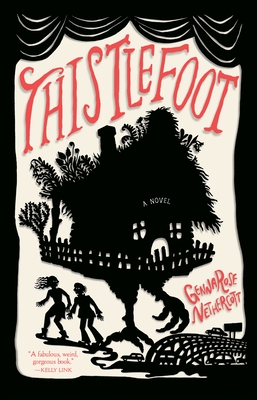
“Thistlefoot” by GennaRose Nethercott — ★★★★★
Nethercott has quickly become one of my favorite authors when it comes to finding stories that feel like fairytales from childhood. I read her collection of folklore-esque short stories, “Fifty Beasts to Break Your Heart,” over the summer and fell in love with her dark and ethereal style. Reading her writing feels like walking through a maze of thorny rose bushes at the witching hour; surrounded by beauty, but never without the feeling that something is lurking around every shadowy corner. “Thistlefoot” is inspired by East Slavic folklore of Baba Yaga and Jewish history, especially in Russia and Ukraine. It’s a story about family and generational trauma, about storytelling as a method of justice and collective memory — and about how memory itself can be both a weapon and medicine. I loved every second of reading this book.

“Starling House” by Alix E. Harrow — ★★★★★
Harrow is brilliant at the story-within-a-story framework. “Starling House” is the first of Harrow’s books I’ve read that takes place in the modern day, and that choice makes her mythical and gothic writing even more captivating because all of her monsters feel like they could be in my own backyard. I love a house with a dark history and a personality of its own, and I love when that house has a mysterious caretaker, and I love when a nosy main character decides to uncover the house’s and caretaker’s secrets for the hell of it, only to be roped in so deep that the secrets won’t ever let her go. This book is so unsettling, but in a really whimsical way, which makes perfect sense. Don’t think about it too hard, just read the book.

“The Whispering Night” by Susan Dennard — ★★★★★
I’ve begun every New Year for the last three years with the next installment of this Dennard YA urban fantasy trilogy. In 2023, it was “The Luminaries,” and in 2024, it was “The Hunting Moon,” so it’s only fitting to start my last New Year’s of college with the series ender, “The Whispering Night.” This trilogy is one of those YA series that doesn’t really feel YA, even though all of the characters are teenagers. Don’t get me wrong, this was definitely written for an audience younger than I am, but Dennard’s instinct for creating suspense is so spot on that I didn’t really care if some of the dialogue was simple or cliche. This ending also contains a trope that I usually hate in fantasy books (see my very next review), but seeing how it was woven in from the beginning of the very first book demonstrates Dennard’s mastery of the long-form fantasy genre. This was a great ending to a great series.

“This Will Be Fun” by E.B. Asher — ★★★☆☆
It’s going to be very hard to write this review without spoiling anything important, because it’s the plot twist at the end that almost ruined the whole book for me. I also think cozy fantasy isn’t really my thing — or maybe it’s just high fantasy that incorporates too many references to things in the modern day. Why does this medieval, renaissance-fair-world have Starbucks, soap operas, and Comic-Con? Also, I understand that the urge can be strong when you have magic at your disposal to give everyone a happy ending by magically fixing every problem they’ve ever had. But (and here is where I’m going to try hard not to spoil it) when all of the character growth, plot development and relationships trace their roots to one unhappy event, ending the book by retroactively making it so that event had never happened is not a great move. Three stars because I did enjoy those aforementioned arcs and relationships while reading.

“A Dark and Drowning Tide” by Allison Saft — ★★★★☆
I read this book for a book club I’m in, and I was one of the only members who really enjoyed this story. This is another book where the atmosphere created by the writer adds a lot to the reading experience. When I say “atmosphere,” I don’t just mean setting; I mean how the author manipulates their setting through language to add an emotional layer to the story. Here’s my elevator pitch for this book: This is a gay fantasy romance murder mystery on a boat, inspired by German folklore. And it’s on a boat. So there’s mist and water and creatures lurking under the surface. And it’s a murder mystery on a boat, which is the best kind. At the craft level, the worldbuilding isn’t the most original, and the narrator being so angry all the time (while mostly justified) gets a little tiring after 200 pages, but I was so enchanted by this book that a lot of that fell by the wayside while I read. And it’s on a boat.

“The Forgotten Garden” by Kate Morton — ★★★☆☆
This book had a lot of potential, but I think I went in with an unrealistic expectation so it’s kind of my fault that I was disappointed. It’s mysterious and enchanting for the most part, but while I’m usually a fan of split-time narrative — especially when the divide is generational — the modern-day perspective Cassandra felt so dull next to the historical narratives of Nell and Eliza. And again, this is totally on me for not doing my research, but when the inciting incident is a child finding a book of fairy tales written by a mysterious author, compounded by an old family mystery, reading the rest of the book and finding no speculative or fantastical elements is a bit of a letdown. Additionally, the “plot twist” at the end was incredibly predictable but yet illogical, and the last-minute romance angle thrown in in the last few chapters discredited a lot of the emotional buildup throughout the book.

“The Rook” by Daniel O’Malley — ★★☆☆☆
This was honestly such a bummer. For starters, it’s really long, and slow-paced, and I can’t stand it when an author is more concerned with showcasing his own cleverness than writing a good mystery. There are some rules when it comes to whodunit-style mysteries that, when broken, can make the whole thing fall apart. O’Malley broke quite a few, and when the big reveal came, rather than that satisfying shock, I was rolling my eyes and rubbing my forehead in frustration. Also, when a male author professes his own brilliance at writing female characters better than some female authors in an interview transcript at the back of the book, sorry, you’ve totally lost me. This book wasn’t terrible. There were glimmers of something interesting in there, but this book had no business being over 500 pages long.
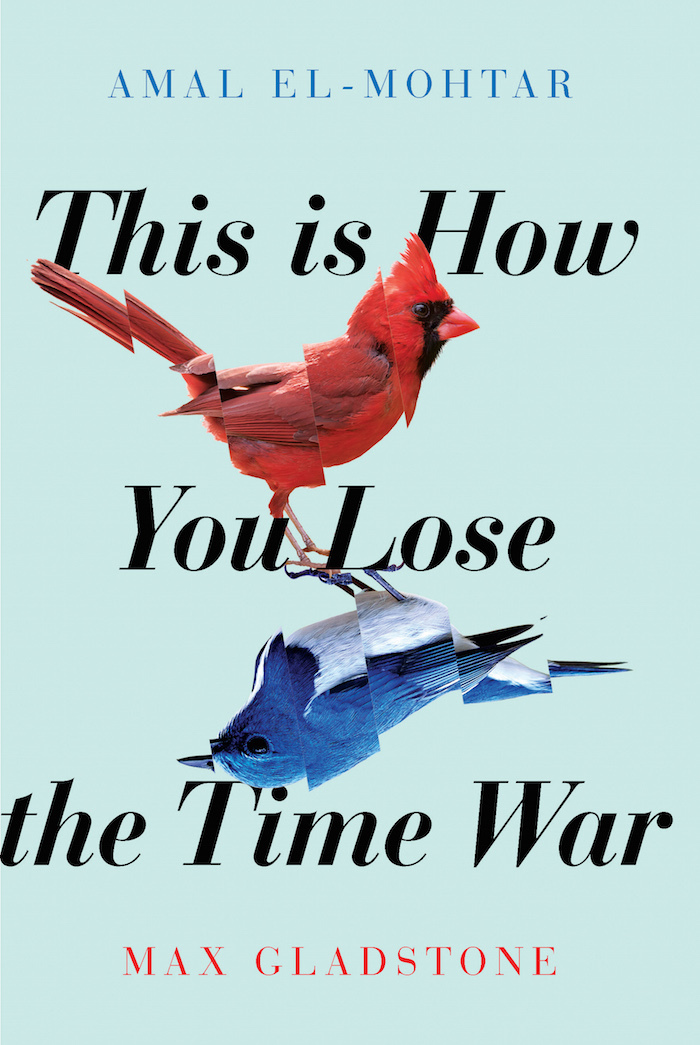
“This Is How You Lose the Time War” by Amal El-Mohtar and Max Gladstone — ★★★★★
If you read my winter 2024 book review, you will know I read this book a little over a year ago, and that I gave it a five-star rating then. After rereading it in February this year, it has officially solidified its place in my top ten favorite books. Considering I’ve already read almost 50 books so far this year alone, this should tell you something about how much I love this book. It’s not just about beautiful prose and good worldbuilding; it’s about storytelling that shoots right into the heart of what love can be. Put that against the backdrop of inconceivably long life and limitless space told in letters between two people and you get what I can confidently call a masterpiece. I don’t really believe in “bad” taste, just bad writing, so I don’t get defensive when people don’t like the books I love. But this is one of those books that I will not hear criticism on.

“Whereas” by Layli Long Soldier — ★★★★★
As a poet, one thing I do tend to get defensive about is when people tell me that they “just don’t like poetry.” I will always respond with the same two things: First, you aren’t reading the right type of/enough poetry; second, read the poem “38” by Layli Long Soldier and then get back to me. “Whereas” is all about language, about verbiage; about the words you know in the back of your mind and showing you how they’re used to coerce and manipulate. Long Soldier pays special attention to language used in dealings between Native North American tribes and the United States government and works to reveal the rot in its underbelly. This collection is both historical and mythical, and her words crawl from the page as if they’re crawling out of their own graves.

“The Scholar and the Last Faerie Door” by H.G. Parry — ★★★★☆
If you enjoyed “Babel” by R.F. Kuang, this is a good way to satiate some of the hunger that story probably left in you when it comes to political historical fantasy. Books like these are, in my opinion, examples of what fantasy can be when it comes to contributing to the role of art and writing as activism. This book wasn’t as good as “Babel,” but the characters are what really made this book for me. The pacing could have been improved. If you’re going to start with a five-page chapter in the modern world, you should not jump immediately into a 30-page backstory that reveals all the motivations of your main character and takes the reader out of the direct action. However, Parry deftly handled the themes of wealth/class-based discrimination and anticolonialism. And she’s good at choosing endings for her characters, even if they aren’t happy.

“The World Cannot Give” by Tara Isabella Burton — ★★★★☆
Fans of “The Secret History” and “If We Were Villains” will probably enjoy this dark academic thriller set at a creepy New England boarding school. You have to be so tired of reading the word “atmosphere” in this blog post, but unfortunately for you, this is another book where the vibes really sold it. This book has its issues; labeling a book “queer” can set an expectation in the reader that certain themes will probably be touched on, but this felt like one of those stories that included WLW interactions to play up the aesthetic of the Tragic Sapphic Poet rather than actually add anything to the conversation. This book deals with other themes better, themes of femininity and power, of wanting more from the world than it has given you and what you’re willing to do to get it. The thriller element was enticing to me, and I thought the ending was the right amount of satisfying (plot-buildup-wise) and surprising.
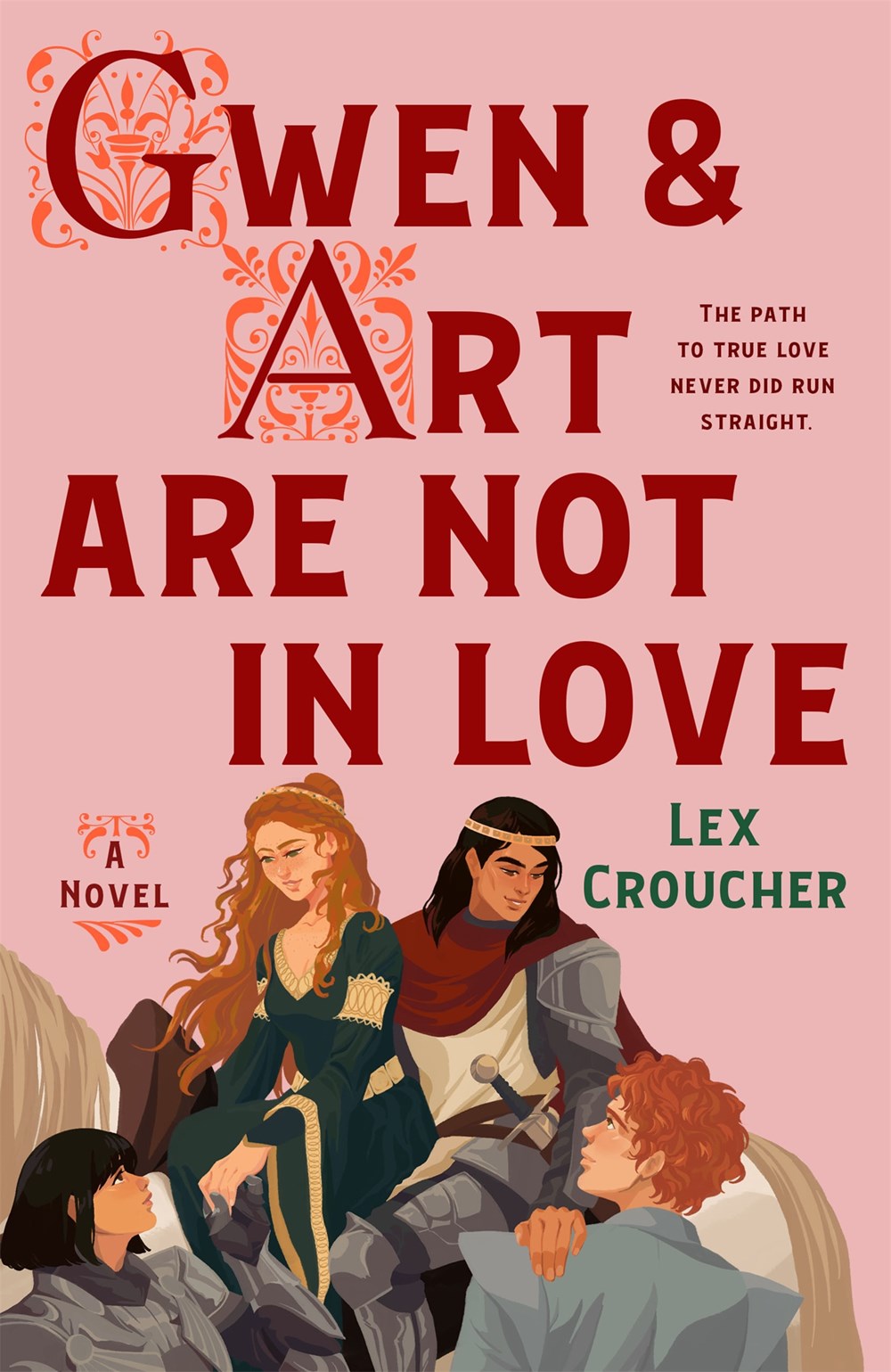
“Gwen & Art Are Not in Love” by Lex Croucher — ★★★★☆
So I did accidentally go into this book thinking it was a King Arthur retelling — which it is not, technically — but I actually wasn’t disappointed. I would say this could also be considered cozy fantasy, but I enjoyed the world and the plot elements a lot more than in “This Will Be Fun.” I’ve come to the conclusion that for me, cozy fantasy belongs in YA, not in adult fiction. For me! Not for everyone! Obviously. Although, honestly, I think the ending of this book technically disqualifies it from being “cozy.” Whatever. Genres aren’t real. Anyway, the storytelling was spot on, and the characters felt well lived-in, both within the story and their relationships to each other. Also, I have it on good authority that queer historical retellings with happy endings are exactly what queer people want from their literature.

“Iron Widow” by Xiran Jay Zhao — ★★★★☆
For whatever reason, I have never been much of a reader of science fiction, but this was another pick for my book club, so I gave it another stab. I was pleasantly surprised. There were moments in this book I wasn’t a fan of. Every time something technical was being explained or during the action scenes, I was pretty disengaged. However, the characters and the story were entertaining, especially the relationship between the three leads, which was very refreshing and unlike anything I’ve seen in recent genre fiction. I’ve also never encountered a female main character who’s literally just feral. She’s so angry! She wants revenge — and goes after it! I got some mixed signals from the writing about what the author was trying to say about gender roles and the impact of patriarchy, but overall the book was a strong intro to this sci-fi world inspired by the real-life Wu Zetian, China’s only female empress.

“We Keep the Dead Close: A Murder at Harvard and a Half Century of Silence” by Becky Cooper — ★★★☆☆
I understand and agree with most of the criticisms of true crime as a genre, but I’m also part of a community where violent crime is a major problem, and our women and girls need all the attention they can get, so I’m attuned to how beneficial attention to these cases in books, podcasts and movies can be. The problem, of course, is when the violence is sensationalized and the focus is pulled from the victims. I picked up this book for that reason; the author asserts that her goal was to focus entirely on the victim, Jane Britton, to tell the story that was taken from her when she was killed in 1969. And while reading, I did feel that the intention was there, and it was genuine. Unfortunately, with this particular story, the sensationalization is kind of built-in — at least, that’s the feeling I got from the amount of information Cooper decided to include. The book was well written on the line level and like I said, the focus on Jane and what made her such an incredible person was a highlight. But all the background stuff about the drama in the Harvard anthropology department that ends up having nothing to do with the outcome is bordering on capitalizing off tragedy.
“Elements of Cadence Duology” by Rebecca Ross

“A River Enchanted” — ★★★☆☆
The first installment of this duology is what I would consider “rainy day fantasy.” A cousin of the “cozy” persuasion, with just a dash more doom and gloom. The story is really pretty. It’s sweet. It’s — take a shot every time I say it — atmospheric. My main annoyance with this book is, again, adult characters and stories told in a YA narration. The pacing is also a little slow for my taste, and the worldbuilding borrows a lot (like, a lot) from Celtic folklore and history, but that’s not necessarily a detriment. I also think the author chose the wrong romance to focus on. Adaira and Jack have great individual characterization, but I didn’t buy their relationship development. Torin and Sidra, however, were a beautifully rendered example of making family where you can find it and how love is hard work, not just something that occurs and is perfect forever.

“A Fire Endless” — ★★★☆☆
Going into this novel, I already knew there would be a lot of frustration in my reading experience because of Adaira’s situation at the end of the first book. I was hoping it would be resolved pretty quickly and everything would get back on track, but it dragged on and on, almost to the very end. And, even worse, it was accompanied by some very weird rhetoric about adoptive vs. blood families. I don’t think it was the author’s intention to make any kind of negative statement about adoption, but every few pages I would shake the book and say to myself, “Why is she falling for this?! These people are all terrible!” Pros: The magic system and romance arc were much better developed, and I liked half of the ending.

“Everything Under” by Daisy Johnson — ★★★★☆
“Everything Under” is one of those books that I’d heard so much about before picking it up that I was almost scared to actually read it for fear it wouldn’t live up to my expectations. But the weird thing is, when I finally got my hands on it, I realized I didn’t really know what I was expecting. Sure, I’d heard of the book several times, but the gist of what I’d heard was just that it was really weird. This book is a retelling of “Oedipus Rex” that takes place on the canals of Oxford, and, yeah, it’s pretty fucking weird. It was also so good that I’m already thinking about reading it again. The experience of reading this book is like walking down a lively riverbank full of smiling families, then being shoved into the murky water and unable to find the surface. And then realizing there’s something else in the water with you, and it’s coming for you.

“Clytemnestra” by Costanza Casati — ★★★★☆
This is the second Clytemnestra-focused retelling I’ve read in a relatively short time. I was looking forward to seeing how Casati approached the infamous ancient queen in a new way. What I really appreciated about this book was that Casati allowed the reader to acquaint themselves with the world of Ancient Greece and its vast cast of characters as if they were brand new, but without condescending to her audience. This book does what so many other retellings don’t and includes all the gory details of Clytemnestra’s story, making the reader thirst for revenge just as much as she does. It’s a very impressive debut, minus one star because the intimidating length doesn’t do itself any favors, especially with the slow pacing in the beginning.

“Camp Zero” by Michelle Min Sterling — ★★★★☆
This novel was my first foray into climate-catastrophe fiction, and it was an incredibly impressive one. The four-star review is mostly because I’m bummed this is a standalone; the scathingly written world, twisting narratives, and open-ended finale left me not only wanting more, but feeling like the story needed more. The real stunners of this book were the “White Alice” chapters which acted almost like choruses, narrated in the first-person collective (the “we” POV). I was fully shaken and stirred when the narrative that had been creeping along in these eerie interjections finally intertwined with Rose’s perspective at the end. As I said, I feel like the ending could have been tied up a little more without losing any of the haunting tone or thematic energy.

“Generations: A Memoir” by Lucille Clifton — ★★★★★
I try not to be this kind of reader, but this was one of those books that I knew would be five stars before I even opened it. Clifton is a dear-to-my-heart favorite of mine; I’ve never read any of her poetry I didn’t like, so it was inconceivable to me that a memoir about her and her family history would be anything less than stunning. The narrative itself is based on stories told to her by her father before he died. Across several sections named for family members, Clifton traces back her lineage several generations. She begins with Caroline, who was abducted from the Dahomey of West Africa and brought to Louisiana in 1822. With as much tenderness and courage as she puts into her poetry, Clifton tells the story of Caroline’s enslavement, her later hard-fought freedom and her family’s journey from the South to Buffalo, New York. The book is short, only 87 pages, but that’s because Clifton is a master of leaving her readers gasping for breath in only a handful of words.

“Devotions: The Selected Poems of Mary Oliver” by Mary Oliver — ★★★★★
I read this collection right at the beginning of spring and can now say that Mary Oliver is Spring Herself. There is not a more perfect time of year to dive into her poetry than when the frost is just beginning to melt and the buds are popping out of the hard ground, when the sun is finally showing herself but not without pulling a chilly breeze along in her wake. And that’s what Oliver’s poetry feels like: blazing sunlight tempered ever so slightly by the last dregs of winter wind. As a creative writing major, let me just confirm what everyone already assumes: Writing poetry is hard. Writing good poetry is harder. Writing good poetry about things like love and devotion and springtime, things that are often dismissed nowadays as not painful enough for impactful art in many literary spaces, is one of the hardest things to write, and Oliver does it like it’s nothing. I couldn’t possibly pick a favorite, but please read “Wild Geese.” Please.

“Sugar Work” by Katie Marya — ★★★☆☆
I admit that I picked this debut poetry collection up because I learned the author grew up partly in Las Vegas, Nevada, and since I tend to make the fact that I grew up in Las Vegas my whole personality, I felt I had an obligation. This book received three stars from me for no malicious reason, simply because it was a perfectly average experience. The poems weren’t bad, but they didn’t stick with me. Most of them were about Marya’s experiences growing up around her mother, who was a sex worker, and she shines some fascinating insight into the profession of sex work that I feel often goes dismissed by society as a whole. She also shares some perspectives through her speakers that I’ve never seen on how being exposed to this world affected the way she looks at certain things in life and forms relationships. Her use of form is subtle, barely there, and she lets the speakers of her poems be vulnerable and snarky at the same time, which was impressive.

“The Heaven & Earth Grocery Store” by James McBride — ★★★★☆
The first third of this book was admittedly hard to get through, but the payoff close to the end was so worth it. Even when reading the beginning, where all the different stories feel only tangentially related and I kept getting frustrated with the switching between plots, I could tell that, at some point, everything would come together in a really interesting way. And boy, did it ever. McBride’s musicality (he is an accomplished jazz musician, specifically a saxophonist) comes through in his writing and his attention to detail. In this neighborhood of Chicken Hill, the reader knows how the sun looks slanting over the tops of the houses at dusk without ever setting foot on the streets, and that’s thanks to McBride’s arresting descriptive writing. He defies your expectations from the first sentence, but never lets you forget them either. It’s like he knows what his reader is thinking will happen next, and although he doesn’t make it happen, he lets us know that we’re onto something, and we shouldn’t let those trains of thought sputter out just yet.

“Eleanor & Park” by Rainbow Rowell — ★★☆☆☆
If I had read this book when I was 16, I think I would have enjoyed it a lot more than I did at 21. I knew something was off as I was reading, and while I caught a few glimpses of it, especially in the interactions between Park and his family (specifically Park and his mom vs. his dad and brother), but it wasn’t until I hopped over to Goodreads and read some reviews by Asian readers that I fully figured out where the weirdness was coming from. I would recommend doing the same rather than relying on my review alone, but let’s just say the stereotyping and fetishization was unpalatable, to say the least. As for my actual reading experience, I enjoyed a good amount of Park’s narration and characterization, but when it got to Eleanor’s chapters, it was a real struggle. Although I had sympathy for her home situation, I could not get behind trying to make her likable just because she had a terrible home life, without giving her any other redeeming or interesting qualities.

“Strike Sparks: Selected Poems, 1980-2002” by Sharon Olds — ★★★☆☆
Unfortunately, my rating for this poetry comes down to the fact that I couldn’t really relate to it. I don’t think relatability is always necessary when reading any genre, but in this case, I was so far removed from a lot of the topics that I couldn’t get into it. Technically, Olds is a methodical, brave writer who chooses topics for her poetry that seem like things one shouldn’t write about. She thrives in the uncomfortable and the icky, and she doesn’t let you look away. She has a way of sounding earnest in her writing, even if the things she’s writing about feel totally made up. I enjoyed reading her poetry from a craft perspective, but I got lost in the context quite often.

“Lady Macbeth” by Ava Reid — ★★★★★
This reimagining of the ruthless Shakespearean villainess, which is almost as controversial as the Scottish play itself, was decadent and bewitching. Be warned, this is a much different portrayal of the manipulative, ambitious Lady Macbeth than appears in the Bard’s version, but even as a Shakespeare nut, I wasn’t disappointed. Lady Macbeth — Roscille, in Reid’s version — takes on the role of reluctant puppet master, pulling strings of her own creation throughout this tale. This version is totally unconventional, and I can see how it isn’t for everyone, but for me, it highlighted some of the sharp edges of the Lady Macbeth I know and love, turning them from the knives I’ve gotten used to into tricks of the light. But don’t get me wrong, Roscille draws just as much blood. Though depicted as meek and mad at the beginning, she ends the story with just as much bark and bite as her original form. The dagger in his hand, indeed.

“The Unidentified: Mythical Monsters, Alien Encounters, and Our Obsession with the Unexplained” by Colin Dickey — ★★★☆☆
Cryptids and conspiracies are my bread and butter. (Not that I’m a conspiracy theorist or anything. Legally.) So when I picked up this book, I was hoping it would introduce me to more shadowy corners of the world just beyond reality that I hadn’t yet found. However, I was pretty disappointed with the storytelling in this book. The author is a journalist; he wasn’t just researching these strange occurrences from behind a computer screen, he was going to those communities with monsters in the woods next door and talking to the people. But it didn’t feel like it. Most of the stories barely scratched the surface, doing a quick synopsis of the history of each event and then jumping into philosophical discussions about why humanity so badly wants the world to be more weird than it probably is. I wanted evidence! I wanted grainy photographs, unexplained footprints! And there was a little bit, but nothing really did much more than a 10 minute YouTube video might do. The writing itself also fell flat for me.

“The Last True Poets of the Sea” by Julia Drake — ★★★★☆
Imagine summer. It’s hot, but overcast, maybe some thunder in the far corner of the sky. You’re someplace with the sea, and you’re lonely. You’re riding a bike down the streets of a seaside town, and it’s empty, and it’s getting dark. You feel like you’re at the end of something. It’s getting colder, but there’s so much moisture in the air that your hair is sticking to your neck, and you just wish you were someplace with other people, someplace with laughter. And then, right as the last of the sunlight is about to wink out and the melancholy quiet of night drapes over you, your friends come spilling out of a restaurant at the end of the street, laughing and waving you over, warm twinkle lights giving them static-electric haloes. And the clouds part, and you aren’t alone. That’s what reading this book was like. Violet, I want you to know — I understand.

“Paper Boat: New and Selected Poems, 1961-2023” by Margaret Atwood — ★★★★★
One of my favorite poems in the world is Atwood’s “Spelling.” I’m almost positive, other than a quote or stanza here and there, that was the only Atwood poem I’d ever read before “Paper Boat.” This is Atwood’s most recent anthology, released just last year, and boy, is it a lot. The collection moves chronologically through her earliest days as a poet, allowing the reader to trace themes and current events that inspired her artistic expression at different stages in her life. I shouldn’t have been surprised, after reading “The Handmaid’s Tale” and “The Testaments,” about Atwood’s command over language and ear for striking word combinations, but somehow this tome left me holding my breath in appreciation more than once. Some of my favorite poems are the myth-based ones. I knew this already from reading “The Penelopiad,” but Atwood has a real knack for taking her readers by the ears and forcing their eyes open, making us see the disturbing parallels between ages of the world long past and things that are happening today.

“Our Hideous Progeny” by C.E. McGill — ★★★★☆
If you’ve read my past reviews, you’ll know that “Frankenstein” is my favorite classic novel. (Before you start whining about how in an earlier review I said I don’t really read science fiction, remember that if the book is a gothic masterpiece written by a 17-year-old girl who invented a literary genre on a dare, it’s the exception, not the rule.) “Our Hideous Progeny,” therefore, had a lot of expectations to live up to. This book is a continuation of “Frankenstein,” tracing the story of the infamous doctor’s great niece, Mary. It’s clear that the author has a great love for the classic novel, and every word put onto the page is an attempt to capture that same grotesqueness, that same bloody clawing at the darkness that lives within humans, that need for greatness, for legacy, that can drive us to madness. I wish we got a bit more out of Mary’s creature, but overall, I felt the plot decisions and character developments were clever and engaging.

“The In-Between Bookstore” by Edward Underhill — ★★★☆☆
I want to get this out of the way: I didn’t dislike this book. It was fine. Darcy was an incredibly wrought voice and a lot of the messaging was right on the money, but it was so obvious to me while reading that this author is not an adult fiction writer. There’s nothing wrong with writing for a YA audience, but where a book will lose me every time is when late-20s and early-30s characters are behaving and thinking like young adults because the author is only used to writing in a YA voice. I also think — and this might be the only time I ever say this in my life — this story would have worked better without the speculative fiction element. It was lazily written and the same plot moments could have happened in a non-magical way. The characters were strong, but the plot itself was lacking as well.
For more sleep-deprived recommendations, check out my 2023, winter 2024, and spring 2024 reviews. And farewell, Beavs. It’s been a pleasure.

